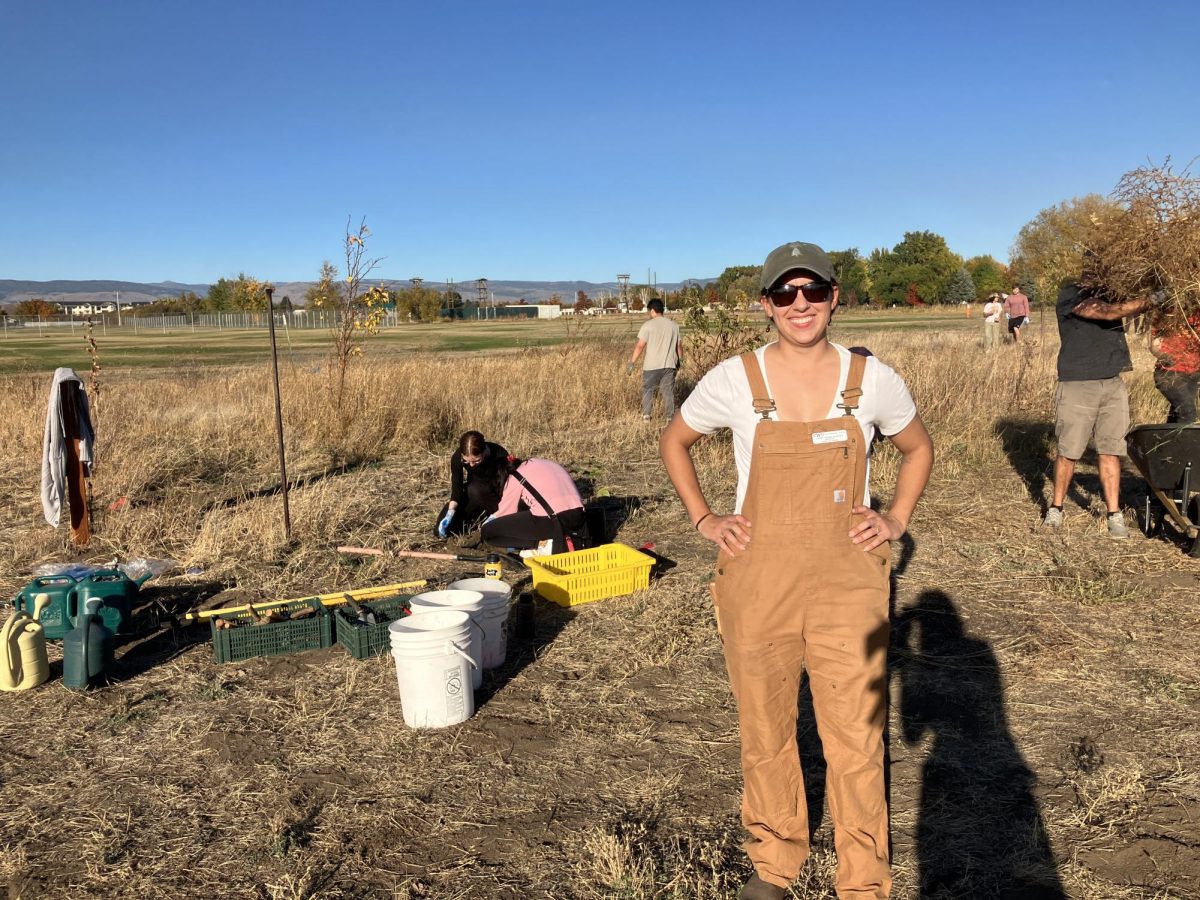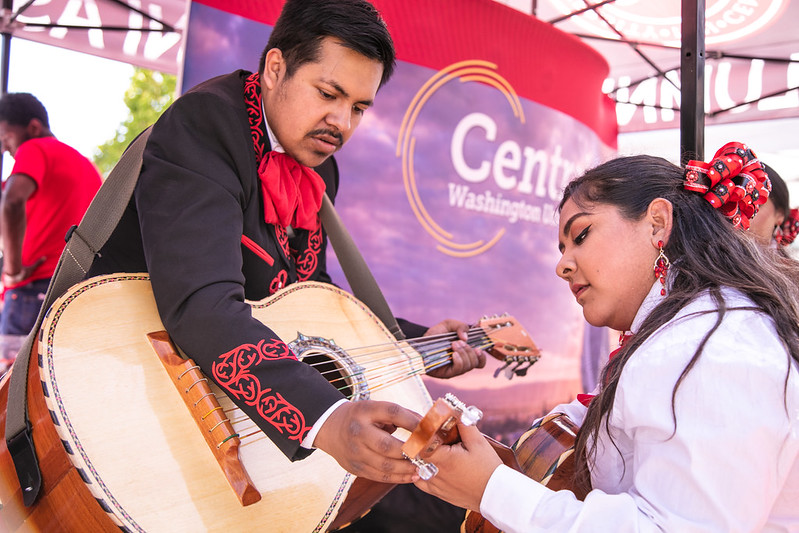
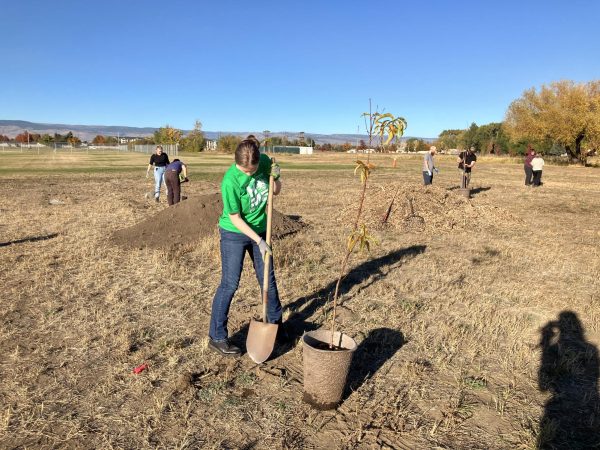
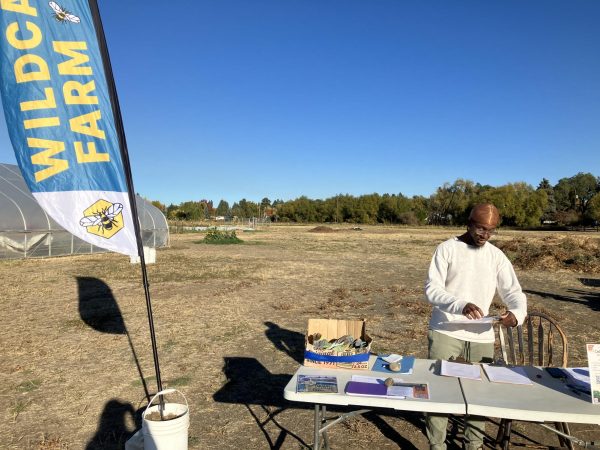


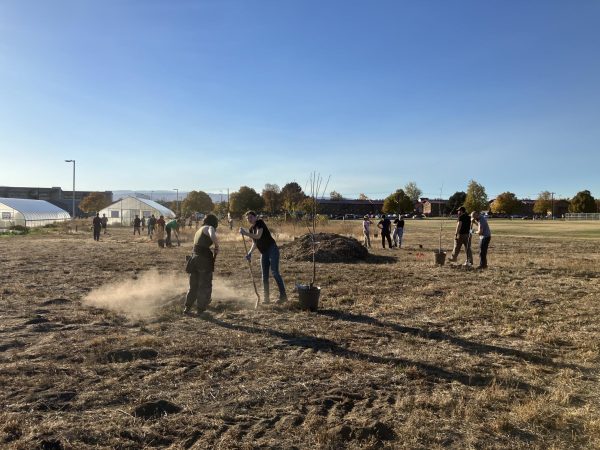
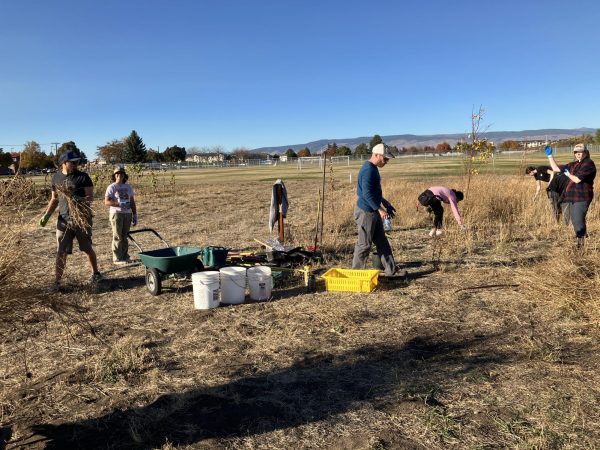
Volunteers gathered on the Wildcat Farm grounds Oct. 19 for the CWU Fall Tree Planting.
To prepare for the impending winter, they did some weeding and were directed to flags in the ground where they dug holes and planted fruit trees.
“We are trying to expand our Food Forest,” said Wildcat Farm and Sustainability Manager Kaitlyn Flesher. “A food forest is the idea that every layer of the forest canopy is edible. So our food forest is lacking fruit trees, a variety of fruit trees and shade trees, so we’re trying to bring both of those things to the food forest.”
Their main goal is for all the food that gets grown on site to go into Dining Services, according to Flesher. Much of their produce is used in the Fresh Bar at the SURC. The produce that is remaining gets sent to catering for special events, the Wildcat Pantry, Fish Food Bank and the Allied People Offering Year-Round Outreach Food Bank.
“This season we had our first ever CSA pilot program …CSA stands for Community Supported Agriculture,” said Flesher. “That’s where folks buy into a share, and then throughout the course of a [six week] season…folks would come and pick up their box of produce and get to take it home.”
According to Flesher, everything that they do at the farm is in an effort to be more sustainable and leave the land in better shape than they found it.
The Wildcat Farm does so by “promoting biodiversity by adding to the food forest,” said Flesher. “We compost everything that we grow here so it all stays on site. We use organic practices, so even though we’re not certified organic, there’s no synthetic pesticides, fertilizers [or] herbicides. None of it is allowed on property here.”
According to Flesher, neither the trees being planted nor the crops on the farm are native to Ellensburg. However, they do have a hedgerow in front of the farm which contains native trees, shrubs and perennials.
Wildlife needs native plants for their food and shelter. Native plants promote biodiversity and protect our ecosystems, according to the USDA Forest Service website.
“The term biodiversity (from ‘biological diversity’) refers to the variety of life on Earth at all its levels, from genes to ecosystems, and can encompass the evolutionary, ecological, and cultural processes that sustain life,” according to the American Museum of Natural History website.
According to Flesher, sustainable agriculture depends on cover cropping, composting and crop rotation. The three C’s. The Wildcat Farm uses all three of those methods.
In terms of the Wildcat Farms composting system for food waste and weeds, “Some days it works, sometimes it doesn’t,” said Flesher. “Our system is pretty rudimentary right now. We are just using a small bin system over here. So we have five separate bins that we throw our browns and greens into.”
According to Flesher, the Wildcat Farm is in the process of getting an industrial composter to dispose of all the food waste from dining services, which can then be used on their crops.


